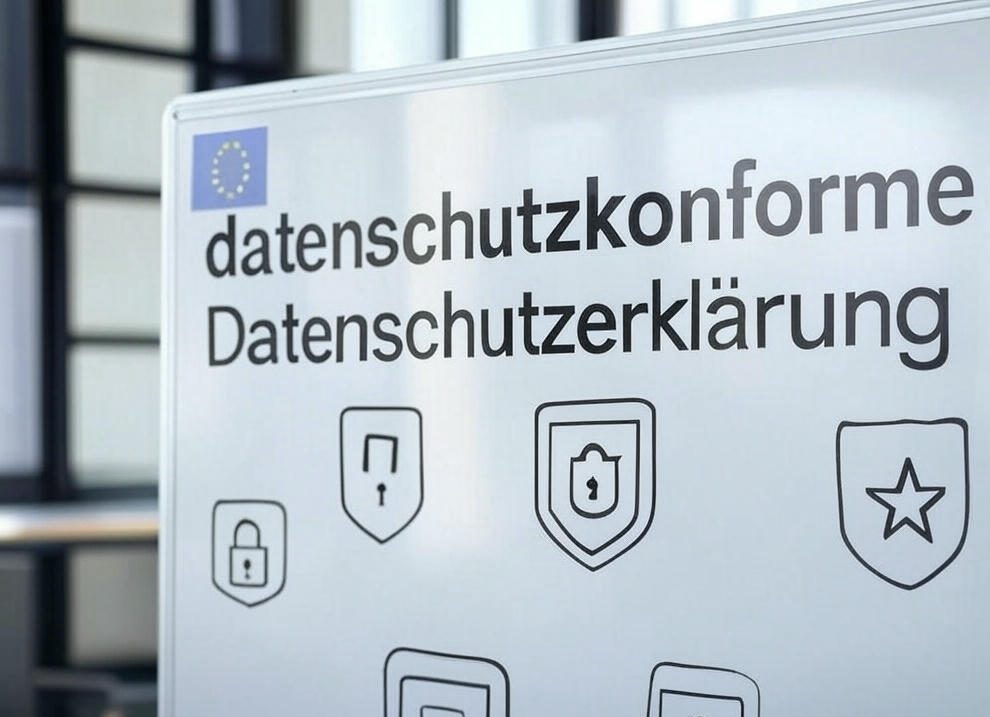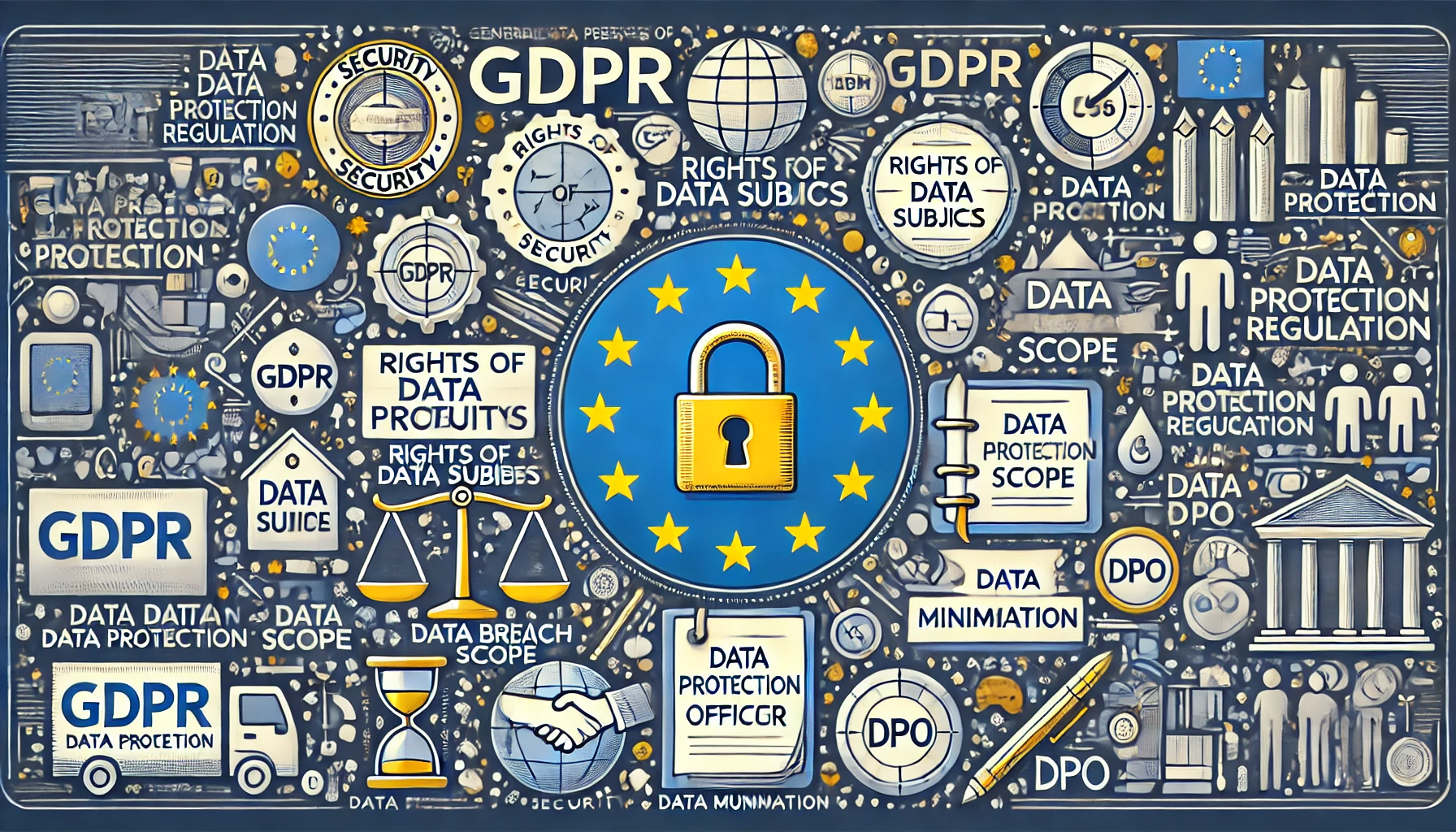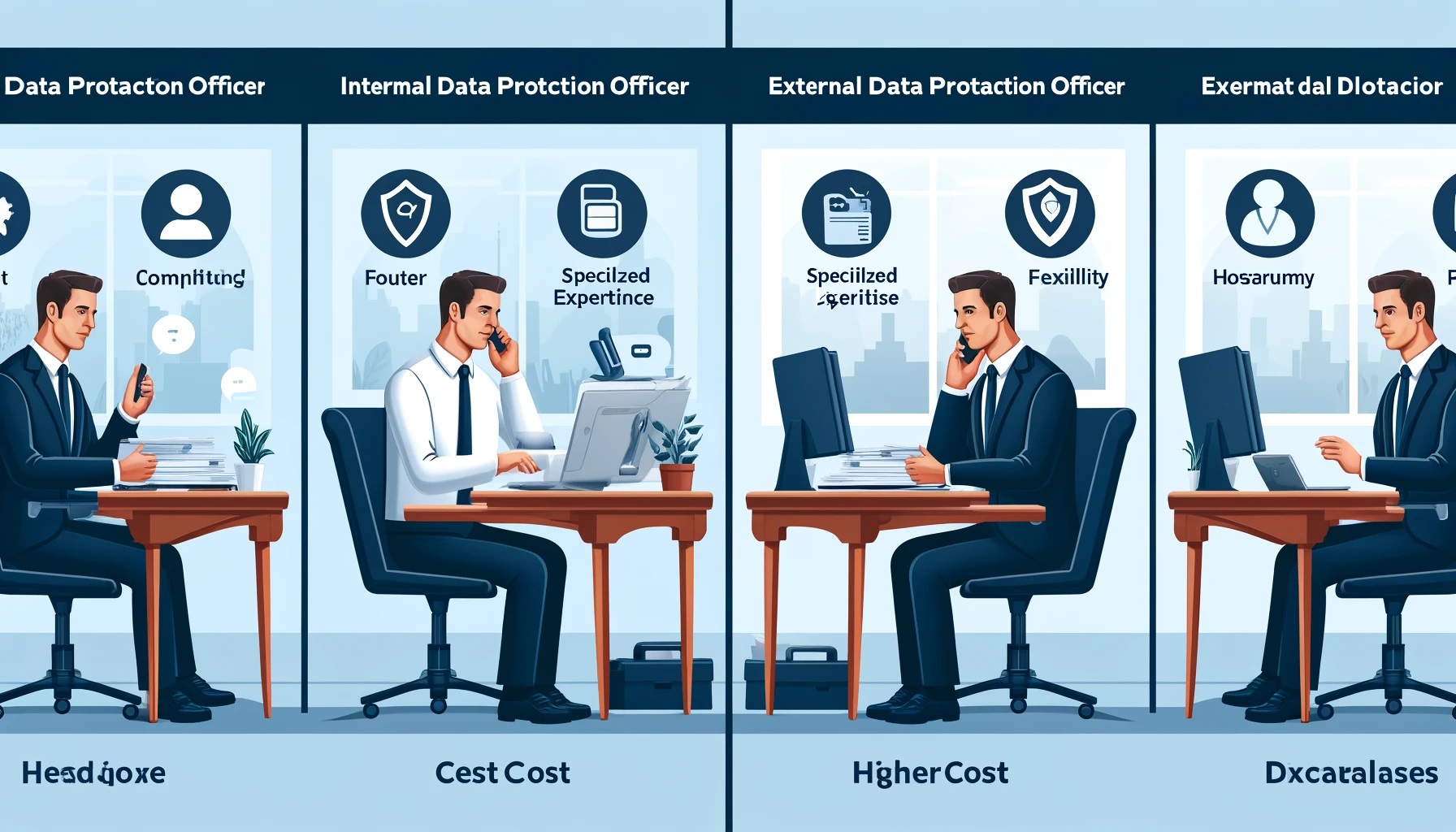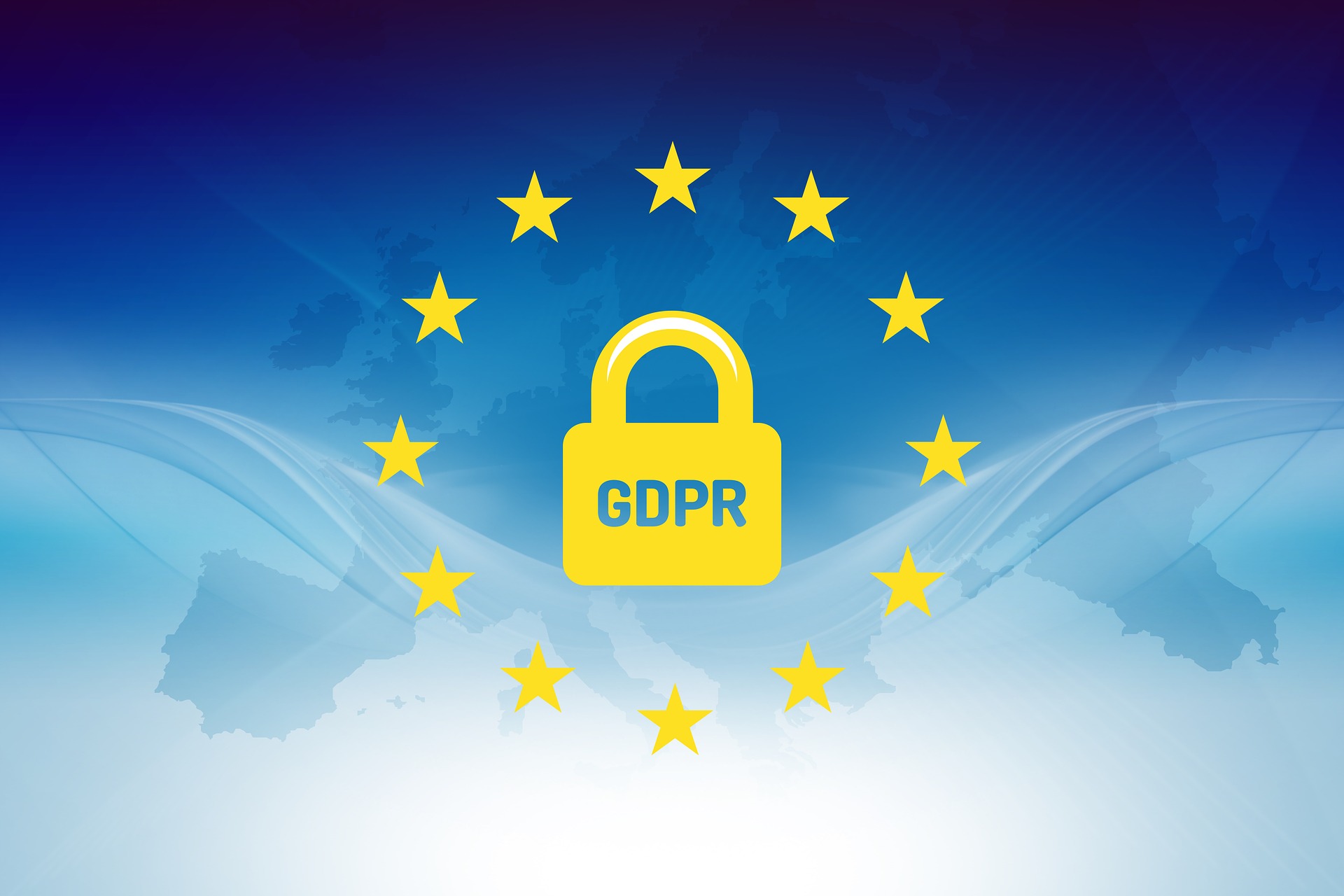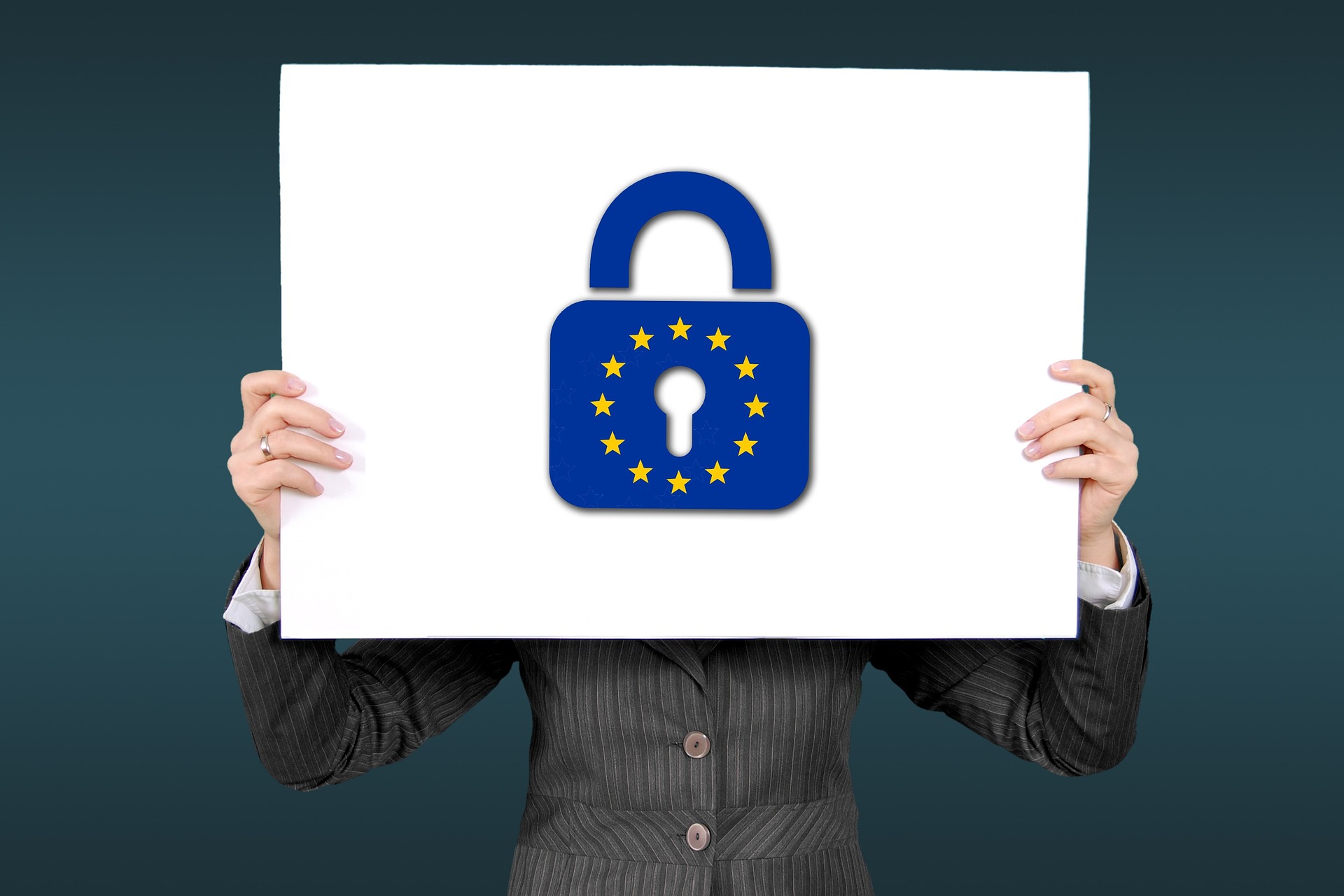Informationen zur DSGVO 2025 - Globeria Datenschutz
Welche Rechte haben Betroffene und wie reagieren Sie darauf?
In Zeiten zunehmender Digitalisierung und Datennutzung gewinnt der Schutz personenbezogener Daten immer mehr an Bedeutung.
Was gilt für Cloud-Dienste unter der DSGVO?
Die Nutzung von Cloud-Diensten hat in den letzten Jahren stark zugenommen, da Unternehmen von der…
Warum ist Mitarbeiterschulung im Datenschutz Pflicht?
In der heutigen digitalen Welt sind Daten das neue Gold. Unternehmen sammeln, speichern und verarbeiten…
Warum braucht Ihr Unternehmen einen EU-Vertreter für Geschäfte in Deutschland?
Wenn Ihr Unternehmen plant, in Deutschland Geschäfte zu tätigen, stehen Sie vor einer Vielzahl rechtlicher…
Wie erstellen Sie eine datenschutzkonforme Datenschutzerklärung?
Eine datenschutzkonforme Datenschutzerklärung ist gesetzlich vorgeschrieben und schützt Ihr Unternehmen vor Abmahnungen und Bußgeldern.
Warum gehen Cybersicherheit und Datenschutz Hand in Hand?
In der heutigen digitalen Ära sind Datenschutz und Cybersicherheit zwei unverzichtbare Säulen, die Unternehmen, Organisationen…
Was müssen Sie über Cookies und Tracking rechtlich wissen?
Cookies und Tracking-Technologien gehören heute zu jedem modernen Internetauftritt. Sie helfen Unternehmen, Nutzerverhalten zu analysieren,…
Was sind die neuen Änderungen der Datenschutz-Grundverordnung im Jahr 2025?
Die Datenschutz-Grundverordnung (DSGVO) ist seit ihrem Inkrafttreten im Mai 2018 ein zentraler Pfeiler des Datenschutzes…
KI und Datenschutz: Wie die EU-KI-Verordnung Ihr Unternehmen betrifft
Künstliche Intelligenz (KI) revolutioniert die Geschäftswelt, doch mit den neuen Möglichkeiten kommen auch neue Herausforderungen…
DSGVO 2025: Die neuesten Anforderungen für Unternehmen meistern
Die Datenschutz-Grundverordnung (DSGVO) ist auch im Jahr 2025 ein unverzichtbares Thema für Unternehmen in der…
Wie KI-gestützte Tools die DSGVO-Compliance im Jahr 2025 prägen
Künstliche Intelligenz (KI) verändert viele Geschäftsprozesse in rasanter Geschwindigkeit, darunter auch die Einhaltung der Datenschutz-Grundverordnung…
Datenschutz im Jahr 2025: Wichtige DSGVO-Updates, die jedes deutsche Unternehmen beachten muss
m Jahr 2024 wird das Thema Datenschutz weiterhin eine zentrale Rolle für Unternehmen in Deutschland…
DSGVO für kleine Unternehmen im Jahr 2025: Einfache Strategien für die Compliance
Seit ihrer Einführung im Jahr 2018 hat die Datenschutz-Grundverordnung (DSGVO) die Art und Weise, wie…
Datenschutzverstöße: Wie Sie Bußgelder vermeiden und Ihr Unternehmen schützen
Die DSGVO (Datenschutz-Grundverordnung) ist das zentrale Gesetz, das den Umgang mit personenbezogenen Daten in der…
Was sollten Sie tun, wenn Sie ein Bußgeldschreiben von der Datenschutzbehörde (DPA) erhalten?
Wenn Sie als Unternehmen ein Bußgeldschreiben von der Datenschutzbehörde (DPA) erhalten, ist es wichtig, umgehend…
Schritt-für-Schritt-Anleitung: Wie Sie Ihre Website DSGVO-konform machen
Die Datenschutz-Grundverordnung (DSGVO) der Europäischen Union stellt sicher, dass die persönlichen Daten der Bürger geschützt…
DSGVO-Checkliste für Shopify-Nutzer: So erfüllen Sie die europäischen Datenschutzvorgaben
Shopify ist eine beliebte E-Commerce-Plattform, die es Unternehmen weltweit ermöglicht, Online-Shops einfach zu erstellen und…
DSGVO für E-Commerce-Onlineshops: Wichtige Leitlinien
Die Datenschutz-Grundverordnung (DSGVO) hat das Datenschutzrecht in der Europäischen Union revolutioniert und stellt E-Commerce-Unternehmen vor…
Was genau ist die allgemeine Datenschutzverordnung (DSGVO) in Europa?
Die DSGVO ersetzt die Datenschutzrichtlinie 95/46/EG und soll die Datenschutzgesetze in ganz Europa harmonisieren, den…
DSGVO-Konformität im Gesundheitssektor: Was Sie in Deutschland wissen müssen
Für Gesundheitsdienstleister in Deutschland ist die Einhaltung der DSGVO nicht nur eine gesetzliche Verpflichtung, sondern…
KI und Datenschutz: Warum ChatGPT die DSGVO-Anforderungen nicht erfüllt
Künstliche Intelligenz (KI) hat sich in den letzten Jahren rasant entwickelt und wird zunehmend in…
Datenschutz-Folgenabschätzung (DSFA) leicht gemacht: Ein Leitfaden
Entdecken Sie den umfassenden Leitfaden zur Datenschutz-Folgenabschätzung (DSFA) leicht gemacht: Ein Leitfaden. Verstehen Sie die…
Datenschutzaudit durch den Datenschutzbeauftragter: Sicherstellung der Einhaltung der Vorschriften
Ein Datenschutzaudit ist eine systematische Überprüfung der Datenverarbeitungsprozesse eines Unternehmens, um sicherzustellen, dass diese den…
Warum Ihr Unternehmen einen externen Datenschutzbeauftragter braucht
Datenlecks und Cyberangriffe sind keine Seltenheit mehr, und die Einhaltung der Datenschutz-Grundverordnung (DSGVO) ist für…
Externer Datenschutzbeauftragter in Sachsen-Anhalt: Rechtliche Anforderungen und Vorteile
In Sachsen-Anhalt, wie auch in anderen Bundesländern, haben viele Unternehmen Schwierigkeiten, die komplexen Datenschutzanforderungen zu…
Die Preisstruktur externer Datenschutzbeauftragter: Ein Überblick
Die Einführung der DSGVO hat die Relevanz von Datenschutzgesetzen in den Mittelpunkt gerückt. Unternehmen sind…
Vergleich: Externer vs. interner Datenschutzbeauftragter – Kosten und Nutzen
Im Zeitalter der Digitalisierung und der zunehmenden Sensibilisierung für Datenschutz ist es für Unternehmen unabdingbar,…
Regeln für den Versand von Cold-E-Mails im Geschäftsleben nach der Datenschutz-DSGVO
In der digitalen Geschäftswelt sind Cold-E-Mails ein weit verbreitetes Mittel, um potenzielle Kunden zu erreichen…
Wann Ihr Unternehmen einen Datenschutzbeauftragter benennen muss – Rechtliche Verpflichtungen
In diesem Artikel werden die rechtlichen Verpflichtungen erläutert, die Unternehmen bei der Ernennung eines Datenschutzbeauftragter…
Wie Datenschutz-Audits helfen können, Bußgelder zu vermeiden
Datenschutz ist mehr als nur eine regulatorische Anforderung; er bildet das Rückgrat der Vertrauenswürdigkeit und…
Warum jedes Unternehmen in Deutschland ein Datenschutz-Audit durchführen sollte?
Ein Datenschutz-Audit, oft auch DSGVO-Audit genannt, spielt dabei eine entscheidende Rolle. Doch warum ist es…
Datenschutzbestimmungen für E-Commerce-Onlineshops in Deutschland
Die Einhaltung der Datenschutzbestimmungen ist für jeden E-Commerce-Onlineshop in Deutschland nicht nur eine rechtliche Notwendigkeit,…
DSGVO-Geldbußen 2024: Beispiele und wie Sie Ihr Unternehmen vor ihnen schützen können?
In einer Zeit, in der der Datenschutz ständig an Bedeutung gewinnt, steigt auch das Risiko…
Was sind die rechtlichen Voraussetzungen für die Ernennung eines externen Datenschutzbeauftragten Deutschland
Die Datenschutz-Grundverordnung (DSGVO) schreibt die Bestellung eines Datenschutzbeauftragten (DSB) unter bestimmten Bedingungen vor, die durch…
Kurzanleitung: 10 Schritte, um Ihre Website DSGVO-konform zu machen
Die DSGVO hat weitreichende Implikationen für Websites, die in Europa betrieben oder europäische Datenverkehr adressieren.
10 entscheidende Schritte zur Auswahl des richtigen externen Datenschutzbeauftragten für Ihr Unternehmen
Insbesondere mit dem Inkrafttreten der Datenschutz-Grundverordnung (DSGVO) in der Europäischen Union ist die Ernennung eines…
DSGVO-Audit: Warum jedes Unternehmen in Deutschland ein Datenschutz-Audit durchführen sollte?
Dieser Artikel befasst sich mit den Gründen, warum jedes Unternehmen in Deutschland ein Datenschutz-Audit durchführen…
Die Rolle des Datenschutzbeauftragten (DSB) in Deutschland: Ein Überblick
In einer digitalisierten Welt, in der persönliche Daten zu einer wertvollen Ressource geworden sind, hat…
DSGVO für KMU: Ein umfassender Leitfaden zur Compliance, Auditierung und Datenschutzberatung in Deutschland
In Zeiten der zunehmenden Digitalisierung kommt kein Unternehmen mehr an der Datenschutz-Grundverordnung (DSGVO) vorbei. Diese…
Wie viel kostet ein externer Datenschutzbeauftragter?
In der digitalen Ära ist Datenschutz zu einem zentralen Thema für Unternehmen aller Größenordnungen geworden.
Warum die DSGVO in Deutschland mehr als nur ein Gesetz ist?
Die Datenschutz-Grundverordnung (DSGVO) hat die Rechte der Betroffenen erheblich gestärkt und ihnen eine größere Kontrolle…
Warum ist die DSGVO in Deutschland entscheidend für Ihr Unternehmen?
Die Datenschutz-Grundverordnung (DSGVO) stellt einen Wendepunkt in der Geschichte des Datenschutzes in Deutschland und der…
Die Auswirkungen der DSGVO auf internationale Unternehmen: Was Sie wissen müssen
Dies macht die DSGVO zu einem wesentlichen Betrachtungspunkt für internationale Unternehmen
Die DSGVO verstehen: Ein Leitfaden für Einsteiger in die EU-Datenschutzrevolution
Die Datenschutz-Grundverordnung (DSGVO) markiert einen Wendepunkt im Bereich der Datenschutzgesetze weltweit.
DSGVO-Compliance: Praktische Schritte für deutsche KMUs
Die Datenschutz-Grundverordnung (DSGVO) hat die Landschaft des Datenschutzes innerhalb der Europäischen Union grundlegend verändert.
Die Zukunft des Datenschutzes in Deutschland: Trends und Vorhersagen post-DSGVO
Die Einführung der Datenschutz-Grundverordnung (DSGVO) im Mai 2018 markierte einen Wendepunkt im Umgang mit personenbezogenen…
Die Grundlagen der DSGVO für Unternehmen in Deutschland: Ein Leitfaden
Die Datenschutz-Grundverordnung (DSGVO) stellt einen Wendepunkt in der Art und Weise dar, wie Datenschutz und…





